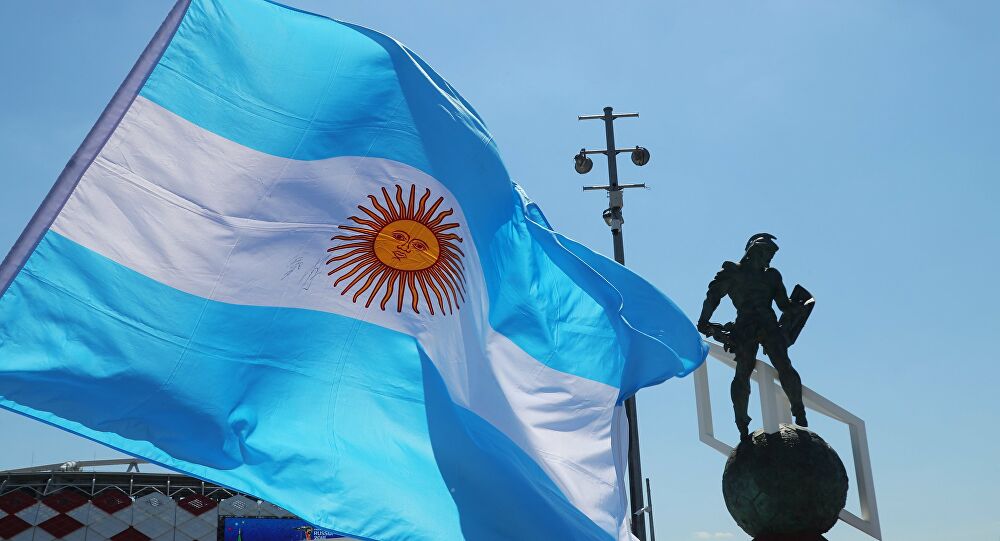RIO DE JANEIRO, BRAZIL – Argentina is suffering a severe economic crisis. But the highly inflamed political debate revolves around something even more urgent: the shortage of vaccines against Covid-19. And particularly Pfizer’s, which for the time being has not reached the country.

“Control your obsession with the Pfizer vaccine,” Health Minister Carla Vizzotti urged after information began to spread (later denied) that the Buenos Aires government had refused to allow the Covax solidarity fund to supply doses of the North American vaccine. One thing seems clear: Argentina erred on the side of optimism and made serious mistakes in its campaign to buy vaccines.
One must go back to nearly the start of the pandemic to piece together the sequence of missteps. In July 2020, when Argentina was into 4 months of one of the longest confinements on the planet, president Alberto Fernández announced that the largest pharmaceutical company, Pfizer, would conduct one of its clinical trials in the country.
Thousands of Argentines would be submitted to an experimental vaccine, and in exchange, Argentina would get preferential treatment (in prices and priority in delivery) once the product was ready. Relations between Alberto Fernández and the Pfizer directors were excellent. Pfizer was the first vaccine authorized by the Argentine health authorities.
However, in August, an AstraZeneca initiative was disclosed: the British company had reached an agreement with Mexican tycoon Carlos Slim and Argentine entrepreneur Hugo Sigman to manufacture at least 150 million doses destined for Latin America.
A laboratory belonging to Sigman’s business group, mAbxience, would produce the active ingredient near Buenos Aires, and another laboratory in Mexico, Liomont, would dose and package it. Priorities changed at the Casa Rosada, which bet heavily on AstraZeneca.
“At that time we believed that the commitments would be fulfilled,” conceded a government spokesman on Wednesday. And the commitments have not been fulfilled. mAbxcience produced the active ingredient and shipped it to Mexico, but there, due to a shortage of auxiliary materials (the United States has banned its export) and administrative intricacies, the process stalled.
The first AstraZeneca “Latin American” doses have not yet been marketed. Only the vaccines bottled in the United States and those manufactured in India have reached Argentina.
In parallel, the purchase negotiations with Pfizer have run aground. There were two obstacles: the Buenos Aires government refused to pay for distribution by DHL (the company to which Pfizer had granted exclusivity to ensure the maintenance of the cold chain) and Pfizer refused to accept the possibility of legal action for “negligence,” as set forth in the emergency decree later amended and passed as law by the Argentine parliament. The point of possible compensation, which in many other countries was left aside, meant the definitive rupture.
In the ensuing months, the Argentine government and several spokespersons very close to vice-president Cristina Fernández de Kirchner offered strange or clearly delusional explanations. It was even said that Pfizer had demanded glaciers as collateral. Only a week ago, President Alberto Fernández declared that some conditions set by the pharmaceutical company placed him “in a very violent situation and compromised the country.” He did not provide any further details.
In addition to bilateral purchases, Argentina could access vaccines through the Covax facility, a World Health Organization-sponsored fund aimed at distributing immunizers internationally as equitably as possible. In February this year, when it was still believed that the millions of doses from AstraZeneca would soon arrive, a government representative explained that it had asked Covax for the lowest possible quantity.
It could order almost 50 million doses (those needed to vaccinate half the population with the two doses), but asked for 9 million, the minimum to access the fund. “The option for the minimum was an intelligent choice” and “opportune” due to “its cost-benefit ratio,” the Ministry of Health’s undersecretary of Administrative Management, Mauricio Monsalvo, told the Chamber of Deputies by video conference.
A few days later, also in February, the scandal of the “VIP vaccination centers” broke out. Hundreds of people, among them politicians, entrepreneurs and journalists linked to Peronism and Kirchnerism, were administered shots outside the established order and, in some cases, at the headquarters of the Health Ministry itself, next to the Minister’s office. Minister Ginés González García was forced to resign. The “VIP vaccination centers” became associated as a stigma to the government’s image.
In Argentina, as elsewhere, vaccine shortages have become a chronic problem. By Wednesday, June 2, 2021, according to official data, less than 3 million people out of a population of 40 million had been administered the two doses, which is less than 7.5% of the population.
In Brazil, where vaccination is also slow, the second dose has been administered to 22,631,020 people, which is equivalent to 10.69% of the Brazilian population, according to Wednesday’s updated data.
And the vaccines in use in Argentina represent a peculiar ideological spectrum: in addition to the British AstraZeneca (for its purported “Latin American” condition), there are also Russian and Chinese vaccines. Now the potential purchase of Cuban vaccines is under negotiation. There are no North American products.
A brief scandal broke out on Tuesday after the Covax Fund’s delegate for Latin America, Santiago Cornejo, said that Argentina had asked him not to include Pfizer vaccines in its shipments.
Later, both Cornejo and Health Minister Carla Vizzotti clarified that this was due to the legal issue with Pfizer (the assumption of “negligence”) and that the request did not reduce the number of doses the country would receive from other manufacturers. Vizzotti also recalled that her government is still negotiating with Pfizer.

